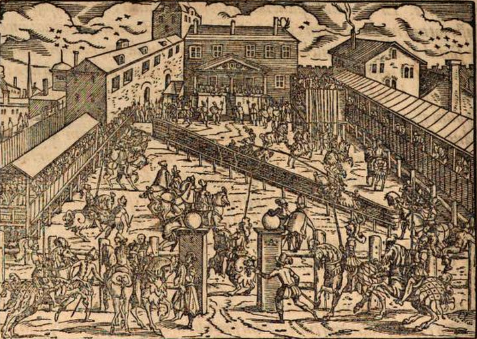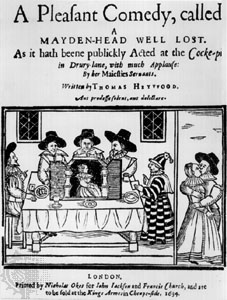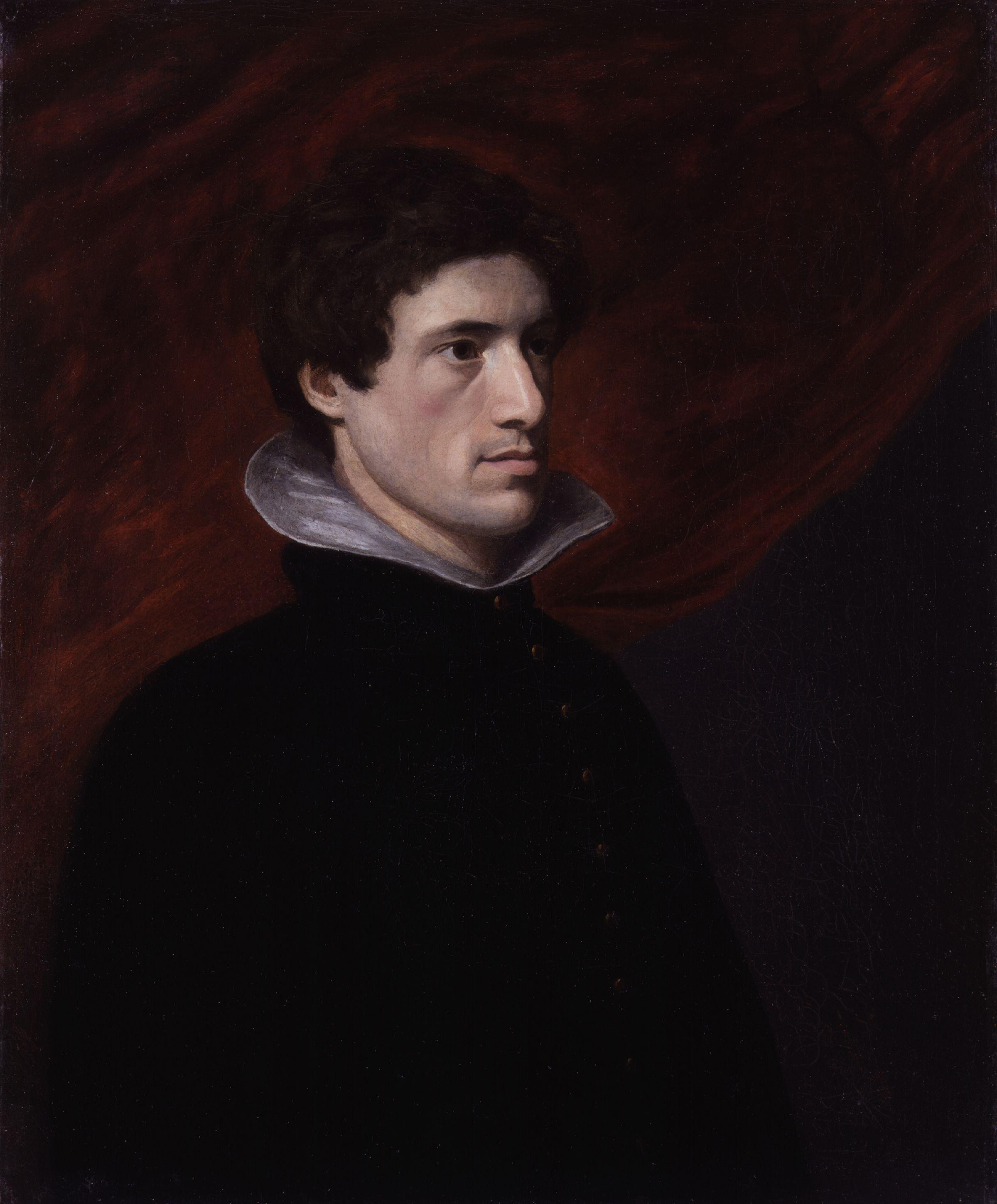|
George Lillo
George Lillo (3 February 1691 – 4 September 1739) was an English playwright and tragedian. He was also a jeweller in London. He produced his first stage work, ''Silvia, or The Country Burial'', in 1730, and a year later his most famous play, ''The London Merchant''. He wrote at least six more plays before his death in 1739, including '' The Christian Hero'' (1735), '' Fatal Curiosity'' (1737) and ''Marina'' (1738). Life George Lillo was born in Moorfields, or Moorgate, in the City of London.Steffensen, James L."Lillo, George (1691/1693–1739)" ''Oxford Dictionary of National Biography'', Oxford University Press, 2004; online edition, May 2008, retrieved 9 December 2011 ("You do not currently have access to this article"Archived site He became a partner in his father's goldsmith's and jewellery business. Early stage works Lillo wrote at least eight plays between 1730 and his death in 1739. His first work in the theatre was the ballad opera '' Sylvia, or The Country Burial'' i ... [...More Info...] [...Related Items...] OR: [Wikipedia] [Google] [Baidu] |
Moorfields
Moorfields was an open space, partly in the City of London, lying adjacent to – and outside – its northern wall, near the eponymous Moorgate. It was known for its marshy conditions, the result of the defensive wall acting like a dam, impeding the flow of the River Walbrook and its tributaries. Moorfields gives its name to the Moorfields Eye Hospital which occupied a site on the former fields from 1822–1899, and is still based close by, in the St Luke's area of the London Borough of Islington. Setting Moorfields is first recorded in the late 12th century, though not by name, as a ''great fen''. The fen was larger than the area subsequently known as Moorfields. Moorfields was contiguous with Finsbury Fields, Bunhill Fields and other open spaces, and until its eventual loss in the 19th century, was the innermost part of a green wedge of land which stretched from the wall, to the open countryside which lay close by. Moorfields separated the western and eastern growth ... [...More Info...] [...Related Items...] OR: [Wikipedia] [Google] [Baidu] |
Melodrama
A modern melodrama is a dramatic work in which the plot, typically sensationalized and for a strong emotional appeal, takes precedence over detailed characterization. Melodramas typically concentrate on dialogue that is often bombastic or excessively sentimental, rather than action. Characters are often flat, and written to fulfill stereotypes. Melodramas are typically set in the private sphere of the home, focusing on morality and family issues, love, and marriage, often with challenges from an outside source, such as a "temptress", a scoundrel, or an aristocratic villain. A melodrama on stage, filmed, or on television is usually accompanied by dramatic and suggestive music that offers cues to the audience of the drama being presented. In scholarly and historical musical contexts, ''melodramas'' are Victorian dramas in which orchestral music or song was used to accompany the action. The term is now also applied to stage performances without incidental music, novels, films, tel ... [...More Info...] [...Related Items...] OR: [Wikipedia] [Google] [Baidu] |
Skanderbeg
, reign = 28 November 1443 – 17 January 1468 , predecessor = Gjon Kastrioti , successor = Gjon Kastrioti II , spouse = Donika Arianiti , issue = Gjon Kastrioti II , royal house = Kastrioti , father = Gjon Kastrioti , mother = Voisava Kastrioti , birth_name = Gjergj ( see Name) , birth_date = 1405 , birth_place = Principality of Kastrioti , death_date = 17 January 1468 (aged 62) , death_place = Alessio, Republic of Venice , place of burial = Church of Saint Nicholas, Lezhë , religion = Islam Catholicism , occupation = Lord of the Principality of Kastrioti, , signature = Dorëshkrimi i Skënderbeut.svg Gjergj Kastrioti ( la, Georgius Castriota; it, Giorgio Castriota; 1405 – 17 January 1468), commonly known as Skanderbeg ( sq, Skënderbeu or ''Skënderbej'', from ota, اسکندر بگ, İskender Bey; it, Scanderbeg), was an Albanian feudal lord and military commander who led a rebellion ag ... [...More Info...] [...Related Items...] OR: [Wikipedia] [Google] [Baidu] |
Thomas Heywood
Thomas Heywood (early 1570s – 16 August 1641) was an English playwright, actor, and author. His main contributions were to late Elizabethan and early Jacobean theatre. He is best known for his masterpiece ''A Woman Killed with Kindness'', a domestic tragedy, which was first performed in 1603 at the Rose Theatre by the Worcester's Men company. He was a prolific writer, claiming to have had "an entire hand or at least a maine finger in two hundred and twenty plays", although only a fraction of his work has survived. Early years Few details of Heywood's life have been documented with certainty. Most references indicate that the county of his birth was most likely Lincolnshire, while the year has been variously given as 1570, 1573, 1574 and 1575. It has been speculated that his father was a country parson and that he was related to the half-century-earlier dramatist John Heywood, whose death year is, again, uncertain, but indicated as having occurred not earlier than 1575 and n ... [...More Info...] [...Related Items...] OR: [Wikipedia] [Google] [Baidu] |
Thomas Dekker (poet)
Thomas Dekker (c. 1572 – 25 August 1632) was an English Elizabethan dramatist and pamphleteer, a versatile and prolific writer, whose career spanned several decades and brought him into contact with many of the period's most famous dramatists. Early life Little is known of Dekker's early life or origins. From references in his pamphlets, Dekker is believed to have been born in London around 1572, but nothing is known for certain about his youth. His last name suggests Dutch ancestry, and his work, some of which is translated from Latin, suggests that he attended grammar school. Career Dekker embarked on a career as a theatre writer in the middle 1590s. His handwriting is found in the manuscript of '' Sir Thomas More'', though the date of his involvement is undetermined. More certain is his work as a playwright for the Admiral's Men of Philip Henslowe, in whose account book he is first mentioned in early 1598. While there are plays connected with his name performed as early ... [...More Info...] [...Related Items...] OR: [Wikipedia] [Google] [Baidu] |
Jacobean Drama
English literature is literature written in the English language from United Kingdom, its crown dependencies, the Republic of Ireland, the United States, and the countries of the former British Empire. ''The Encyclopaedia Britannica'' defines English literature more narrowly as, "the body of written works produced in the English language by inhabitants of the British Isles (including Ireland) from the 7th century to the present day. The major literatures written in English outside the British Isles are treated separately under American literature, Australian literature, Canadian literature, and New Zealand literature." However, despite this, it includes literature from the Republic of Ireland, "Anglo-American modernism", and discusses post-colonial literature. ; See also full articles on American literature and other literatures in the English language. The English language has developed over the course of more than 1,400 years. The earliest forms of English, a set of Anglo-F ... [...More Info...] [...Related Items...] OR: [Wikipedia] [Google] [Baidu] |
Bourgeois Tragedy
Bourgeois tragedy (German: ''Bürgerliches Trauerspiel'') is a form of tragedy that developed in 18th-century Europe. It is a fruit of the enlightenment and the emergence of the bourgeois class and its ideals. It is characterized by the fact that its protagonists are ordinary citizens. In England and France There are a few examples of tragic plays with middle-class protagonists from 17th century England (see domestic tragedy), but only in the 18th century did the general attitude change. The first true bourgeois tragedy was an English play: George Lillo's ''The London Merchant; or, the History of George Barnwell'', which was first performed in 1731. In France, the first ''tragédie bourgeoise'' was ''Sylvie'' by Paul Landois, which came out in 1741. Years later came two plays by Denis Diderot: ''Le fils naturel'' was first staged in 1757 and ''Le père de famille'' in the following year; while these plays were not strictly tragedies, they treat bourgeois lives in a serious mann ... [...More Info...] [...Related Items...] OR: [Wikipedia] [Google] [Baidu] |
Domestic Tragedy
In English drama, a domestic tragedy is a tragedy in which the tragic protagonists are ordinary middle-class or working-class individuals. This subgenre contrasts with classical and Neoclassical tragedy, in which the protagonists are of kingly or aristocratic rank and their downfall is an affair of state as well as a personal matter. These plays were in particular contrast to De casibus tragedy like De casibus virorum illustrium by Giovanni Boccaccio The Ancient Greek theorist Aristotle had argued that tragedy should concern only great individuals with great minds and souls, because their catastrophic downfall would be more emotionally powerful to the audience; only comedy should depict middle-class people. Domestic tragedy breaks with Aristotle's precepts, taking as its subjects merchants or citizens whose lives have less consequence in the wider world. In Britain, the first domestic tragedies were written in the English Renaissance; one of the first was ''Arden of Faversham'' ... [...More Info...] [...Related Items...] OR: [Wikipedia] [Google] [Baidu] |
Colley Cibber
Colley Cibber (6 November 1671 – 11 December 1757) was an English actor-manager, playwright and Poet Laureate. His colourful memoir ''Apology for the Life of Colley Cibber'' (1740) describes his life in a personal, anecdotal and even rambling style. He wrote 25 plays for his own company at Drury Lane, half of which were adapted from various sources, which led Robert Lowe and Alexander Pope, among others, to criticise his "miserable mutilation" of "crucified Molière ndhapless Shakespeare". He regarded himself as first and foremost an actor and had great popular success in comical fop parts, while as a tragic actor he was persistent but much ridiculed. Cibber's brash, extroverted personality did not sit well with his contemporaries, and he was frequently accused of tasteless theatrical productions, shady business methods, and a social and political opportunism that was thought to have gained him the laureateship over far better poets. He rose to ignominious fame when he became t ... [...More Info...] [...Related Items...] OR: [Wikipedia] [Google] [Baidu] |
Samuel Richardson
Samuel Richardson (baptised 19 August 1689 – 4 July 1761) was an English writer and printer known for three epistolary novels: ''Pamela; or, Virtue Rewarded'' (1740), '' Clarissa: Or the History of a Young Lady'' (1748) and ''The History of Sir Charles Grandison'' (1753). He printed almost 500 works, including journals and magazines, working periodically with the London bookseller Andrew Millar. Richardson had been apprenticed to a printer, whose daughter he eventually married. He lost her along with their six children, but remarried and had six more children, of which four daughters reached adulthood, leaving no male heirs to continue the print shop. As it ran down, he wrote his first novel at the age of 51 and joined the admired writers of his day. Leading acquaintances included Samuel Johnson and Sarah Fielding, the physician and Behmenist George Cheyne, and the theologian and writer William Law, whose books he printed. At Law's request, Richardson printed some poems by J ... [...More Info...] [...Related Items...] OR: [Wikipedia] [Google] [Baidu] |
Charles Lamb
Charles Lamb (10 February 1775 – 27 December 1834) was an English essayist, poet, and antiquarian, best known for his ''Essays of Elia'' and for the children's book ''Tales from Shakespeare'', co-authored with his sister, Mary Lamb (1764–1847). Friends with such literary luminaries as Samuel Taylor Coleridge, Robert Southey, William Wordsworth, and William Hazlitt, Lamb was at the centre of a major literary circle in England. He has been referred to by E. V. Lucas, his principal biographer, as "the most lovable figure in English literature". Youth and schooling Lamb was born in London, the son of John Lamb (–1799) and Elizabeth (died 1796), née Field. Lamb had an elder brother and sister; four other siblings did not survive infancy. John Lamb was a lawyer's clerk and spent most of his professional life as the assistant to a barrister named Samuel Salt, who lived in the Inner Temple in the legal district of London; it was there, in Crown Office Row, that Charles Lamb ... [...More Info...] [...Related Items...] OR: [Wikipedia] [Google] [Baidu] |
Great Expectations
''Great Expectations'' is the thirteenth novel by Charles Dickens and his penultimate completed novel. It depicts the education of an orphan nicknamed Pip (Great Expectations), Pip (the book is a ''bildungsroman''; a coming-of-age story). It is Dickens' second novel, after ''David Copperfield'', to be fully narrated in the first person.''Bleak House'' alternates between a third-person narrator and a first-person narrator, Esther Summerson, but the former is predominant. The novel was first published as a serial (literature), serial in Dickens's weekly periodical ''All the Year Round'', from 1 December 1860 to August 1861. In October 1861, Chapman and Hall published the novel in three volumes. The novel is set in Kent and London in the early to mid-19th century and contains some of Dickens's most celebrated scenes, starting in a graveyard, where the young Pip is accosted by the escaped convict Abel Magwitch. ''Great Expectations'' is full of extreme imagery – poverty, prison ... [...More Info...] [...Related Items...] OR: [Wikipedia] [Google] [Baidu] |







.jpg)

